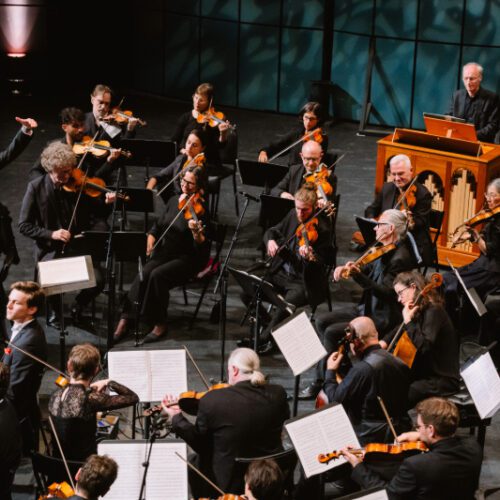This weekend, Arion Orchestre Baroque presents its opening concert with Maskoutain pianist Élisabeth Pion as guest soloist, in a concert whose main attraction is the (re)premiere of works by French composer Hélène de Montgeroult (1764-1836).
A great visionary, the rare aristocrat to have been spared by the French Revolution and the only woman to have passed the competitive examination to teach the first piano classes at the Paris Conservatoire de Musique, Montgeroult’s musical language is imbued with the palette of Mozart’s classicism, but with a few experiments that hint at the beginning of Romanticism.
After the orchestra’s introduction of Mozart’s Symphony No. 26, allowing us to appreciate Mathieu Lussier’s energetic conducting, the soloist presented Montgeroult’s Piano Concerto No. 1 in E-flat major, which the composer constructed as an adaptation of Viotti’s violin concertos.
The instrument here is worthy of mention, as it lends full relief to the “historically informed” spirit of the concert. Played on a Broadwood 1826 forte-piano, on loan from patron Jacques Marchand, the instrument offers a woodier, less resonant sound than modern pianos, but allows greater agility than a harpsichord.
The airy agility of Élisabeth Pion’s fingering is illustrated in the energetic first movement, while the second features a melodic line of great lyricism reminiscent of Chopin, but without the great melancholy flights of the Preludes or Nocturnes, for example. The third movement, Rondo: Allegretto, is resolutely Beethovenian in character, with its bouncy strings and the piano’s place in it, as in L’Empereur.
In the second half of the concert, Mathieu Lussier presents a reconstruction of Montgeroult’s works. Having composed very little for orchestra, Lussier decided to arrange several Montgeroult pieces in the form of an overture, L’impératrice.
The typical lively-slow-fast scheme and choice of orchestration allow us to appreciate Montgeroult’s language in Mozartian and Beethovenian territory.
Mozart’s Piano Concerto No. 24 in C minor was the scene of a complicit dialogue between soloist and conductor, but the winds seemed a little too generous in their amplitude of sound, making it difficult for Élisabeth Pion’s playing to stand out at certain moments.
The Mozart and Montgeroult concert is presented today, Saturday and Sunday at Salle Bourgie. A concert well worth braving the rain for, if only to discover the luminous music of Hélène de Montgeroult.
Photo credit : Frederik Robitaille
























